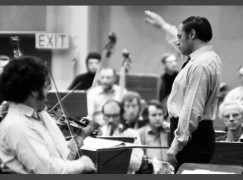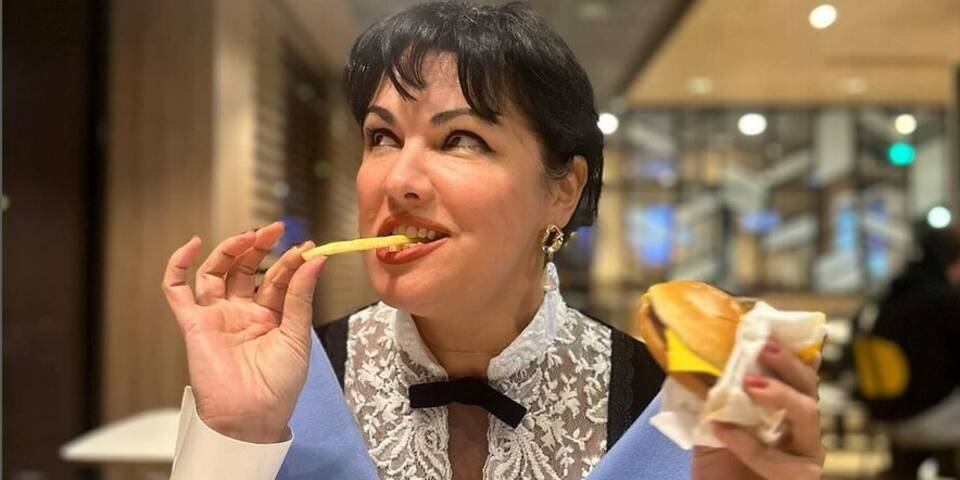BBC cuts: Musicians are alarmed
NewsThe freezing of the BBC’s licence fee for the next two inflationary years will impact on the broadcaster’s musical output. The BBC is the UK’s largest employer of musicians.
The Musicians Union last night issued this warning:
On 17 January Culture Secretary Nadine Dorries announced that the TV licence fee has been frozen for two years, as the government moves to support families in the face of rising living costs.
The official Government statement confirms that the fee will remain at £159 until 2024, and then rise in line with inflation for the following four years. The plans for the new licence fee settlement cover a period of six years and will take effect from 1 April 2022 until 31 March 2028.
Speaking of the settlement, Dorries said: ‘This is a fair settlement for the BBC and for licence fee payers. The BBC must support people at a time when their finances are strained, make savings and efficiencies, and use the billions in public funding it receives to deliver for viewers, listeners and users.’
However the proposed savings could see job opportunities impacted for MU members and musicians alike. MU General Secretary Horace Trubridge says:
‘Although we realise how difficult the past two years have been for many people, very few professions have suffered as much as musicians and the real terms reduction in funding for the BBC will hit musicians once more.
‘The BBC is the single biggest employer of MU members in the UK and is in the unique position of supporting five full-time orchestras. The BBC orchestras alone employ more than 400 contract musicians and many hundreds more on a freelance basis. The BBC also employs and supports musicians working in all genres through its radio and television programming – virtually all MU members will interface with the BBC at one stage of their career.
‘No other broadcaster plays such a diverse range of music and the BBC is also the main commissioner of new music in the UK. The freezing of the licence fee will stifle new music opportunities.
‘Beyond music, the BBC is the envy of the world. It is essential that the BBC continues to be able to provide access to a wide range of culture that the market may not provide for and which may not be commercially attractive, but which is irreplaceable to the people who watch and listen to it.
‘Freezing the licence fee is a drop in the ocean in terms of tackling the cost of living crisis and will directly harm job opportunities. It might be better for the Government to focus on the real problem, which is spiralling home energy bills.’






Freezing the licence is to help our poorest, and inflatiin in Britain is running wild. Everything is going up disproportionately except salories to meet it. It makes a big difference for those many receiving Universal Credit, or Income Support, or a pensioner over 75 who found themselves having to pay for the BBC licence. It has become a unfair tax as it is compulsory if you own a television and then not watch any BBC, or can afford to go the Proms. The MU were always going to crow. The BBC should be funded differently and be paid for by those who use it or through the British income tax system of Pay As You Earn (PAYE) so those who earn the most pay the most.
“It has become a unfair tax as it is compulsory if you own a television”
Not true. Get your facts right.
The BBC musicians were paid throughout the pandemic, for nearly two years, whilst many of their self employed colleagues suffered enormous financial difficulties – having to sell instruments, homes, items plus having pizza delivery jobs! Just one example I’m highlighting.
So there is little support for these BBC musicians who should face the harsh reality many of us live each day.
This is the typical lowest common denominator response. These musicians were treated properly but you want them to suffer like the others. Rather like the gutter press denouncing anyone who gets a good pay deal. They would rather have everyone scraping along the bottom – except their owners and shareholders of course!
Whilst indeed there are c.400 musicians employed full-time by the BBC in its five orchestras and one professional choir, a much larger number of freelance musicians, composers, arrangers and myriad musical “support” services have livelihoods which depend in part – some to a large, some to a lesser, extent – on their musical work being used, and paid for, by the BBC.
Such work includes airtime play of recordings, transmission of concerts, commission of new works and use of existing arrangements, and – more easily overlooked but probably the largest sector of all – music played in the background at some point across almost every programme: documentaries, dramas, children’s TV, soap operas, sports programmes, quiz shows, cookery programmes – almost all somewhere contain music, written or arranged and performed by musicians. There’s a much more complicated and interdependent musical ecosystem in broadcasting than just the salaries of a few hundred fulltime BBC musicians.
What the MU is drawing attention towards is that tens of thousands of musicians – from classical, jazz, pop and more – have livelihoods which depend at least in part on the BBC. There are precious few freelance musicians who haven’t had the most awful two years. If BBC budgets are cut, savings will have to be made in every area, and musical elements will be high on the list (just look at where cuts in education fall), and those already precarious livelihoods will be further endangered. So hard-pressed, immensely talented yet mostly ill-paid freelancers will see yet more of their livelihoods disappearing.
And surely that is the most important point which the MU is making.
The Ministry of Defence is the largest employer of musicians in the UK
Even if that is true, are they MU members?
I think not paying the license is no longer a crime after this year. The BBC is collapsing under the weight of its own woke garbage. NPR and PBS are next.
Perhaps if they didn’t waste so much of the fee on endless Attenborough animal crap there might be something left!
Sorry, but I’m going to re-resurrect a corpse: the BBC needs to reconsider its attitude to commercial advertising to provide another income source. When the BBC has a new costume drama in the pipeline, there’s so much advertising of that that I feel I’ve seen the entire bloody thing before the first episode airs! Use that time to show commercials; there’ll be no shortage of advertisers.
The MU is going to be like a water pistol against an inferno with this. Whether it’s the drift towards Netflix, the BBC’s obsession with identity politics or its treatment of pensioners, a large swathe of the public has fallen out of love with it and don’t want to pay for it anymore. 1.7 million licence fees were cancelled in the last two years. There was big trouble brewing well before Dorries.
It would help if the BBC stopped sending overpaid celebs around the world to make inane comments in exotic locations.Bad housekeeping is partly the answer.